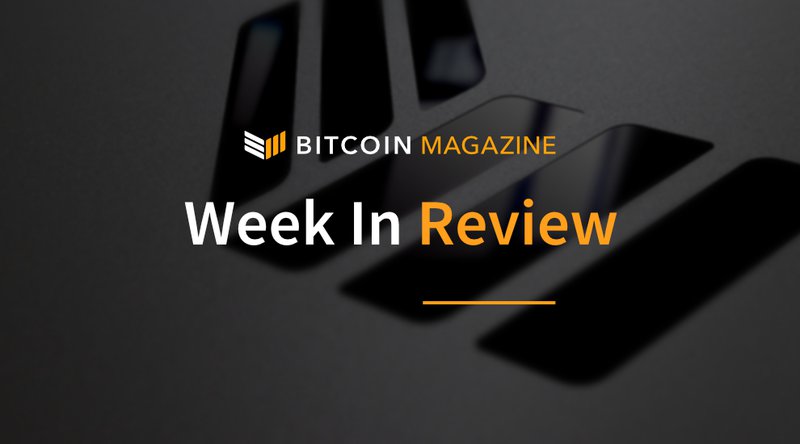Week in Review for March 3, 2018: Bitcoin Developments and Cryptocurrency Adoption

This past week marked a few important events. It began with the release of Bitcoin Core 0.16; marked the first instance of a sovereign nation announcing that it would use and accept a cryptocurrency as legal tender; and included the launch of a new accelerator from “China’s eBay,” JD.com, to assist companies that promise to have transformative technology in the blockchain space.
We also examined the appeal of cryptocurrencies to millennials and launched our cover story for the month of March covering the complicated role of patents in the Bitcoin industry and the new Bitcoin Defensive Patent License.
Here are some of the headlines from this past week in the Bitcoin and blockchain space.
Featured stories by Reuben Jackson, Aaron Nelson, Giulio Prisco and Aaron Van Wirdum.
Bitcoin Core 0.16.0 Is Released: Here’s What’s New
The official release of Bitcoin Core 0.16.0 marked the 16th generation of the original Bitcoin client software launched by Satoshi Nakamoto over nine years ago. This new release was developed by more than 100 contributors over the course of five months. The release focused on performance improvements, bug fixes and various optimizations but, in particular, it made Segregated Witness (SegWit) fully available for wallet users.
Chinese E-Commerce Giant JD.com Launches Blockchain Accelerator
With over a quarter billion active users, JD.com is often referred to as the eBay of China. As an enthusiastic supporter of blockchain technology, JD.com is now launching AI Catapult Accelerator (AICA), an accelerator program designed to unlock the transformative potential of startups demonstrating cutting-edge talent in the blockchain space.
Six blockchain technology companies — CanYa, Bluzelle, Nuggets, Republic Protocol, Devery and Bankorus — have been chosen as members of the AICA accelerator’s first cohort. Benefits for companies in the AICA program will include marketing, PR and international business development help from JD.com.
New “Sovereign” Cryptocurrency Will Be Legal Tender in the Marshall Islands
Y-combinator Israeli fintech startup Neema is partnering with the Republic of the Marshall Islands (RMI) to issue a new cryptocurrency that will act as legal tender for the sovereign nation. The new currency is called “Sovereign” with a trading symbol of “SOV.” The ICO will occur later in 2018.
This is the first nation to officially adopt a cryptocurrency as a legal tender that will be accepted along the native US Dollar currency. The SOV has the benefits of cryptocurrency and the legal and regulatory framework that covers sovereign currencies. You can use it without worrying about capital gains and even the ICO may be like selling any currency — Euro, Yen, etc. The implications for mainstream adoption are significant.
Op Ed: Why Millennials Migrate to Blockchain Technology and Cryptocurrencies in Droves
As a generation, millennials seem to be poorer than their parents were at the same age, with historically low wage growth and unrelenting inflation. Between student loan debts of $1.5 trillion and the burden of pushing out tough financial decisions to the future of previous generations, many millennials have given up hope of a healthy financial future. Cryptocurrency offers a route that bypasses the current status quo for many.
Millennials tend to be more tech savvy and willing to embrace new and “disrupting” technology. They see blockchain technology as a tool that their generation can embrace in order to improve their outlook for the future.
There Is a Bitcoin Patent War Going On, but These Initiatives Could End It
While all the major Bitcoin software implementations are open source under the MIT License, this democratized sense of intellectual property “protection” is not true for all applications and companies built on top of and around Bitcoin. The number of Bitcoin– and blockchain-related patents has grown from several dozen in 2015 to several hundred in 2017. Many blockchain tech companies are filing for patents in pre-emptive moves against potential patent trolls in the future. A number of patents in recent years for chip design and power supply delivery on ASIC chips, such as AsicBoost, have caused quite a bit of controversy and were even addressed in last summer’s SegWit code update.
A new initiative, the Blockchain Defensive Patent League (BDPL), represents an updated version of the Defensive Patent License (DPL). The BDPL offers improved protection and blocks potential circumvention over the DPL in a number of important ways. The current patent holder for AsicBoost, Little Dragon Technology, announced they will be part of the BDPL and make the patent freely available to anyone that joins the BDPL.
This article originally appeared on Bitcoin Magazine.


